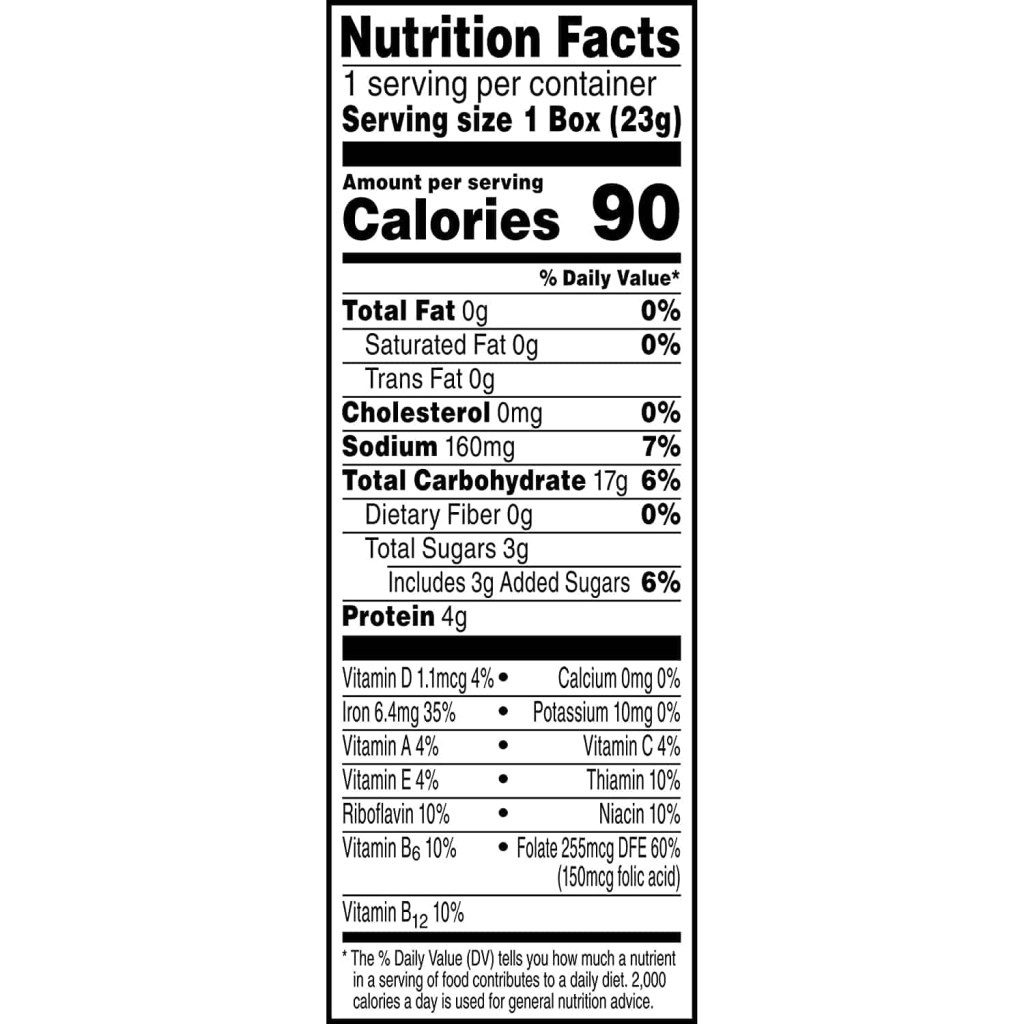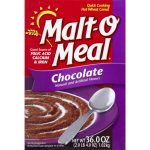Unlock The Carb Content Of Special K Cereal: Discover How Many Carbs Are In Each Serving
How Many Carbs in Special K Cereal?
Introduction
Greetings, Cereal Enthusiast! Are you a fan of Special K cereal? If so, you might be wondering about the carb content in this popular breakfast option. In this article, we will delve into the details of how many carbs are in Special K cereal and provide you with valuable information to help you make informed choices about your breakfast. So, let’s dive in and explore the world of Special K carbs!
Overview
Before we jump into the specifics, let’s take a moment to understand what Special K cereal is all about. Special K is a brand of breakfast cereal that has gained popularity for its focus on weight management and healthy eating. It is often marketed as a nutritious choice for those aiming to maintain a healthy lifestyle and manage their weight. Now, let’s move on and explore the carb content in this cereal.
1 Picture Gallery: Unlock The Carb Content Of Special K Cereal: Discover How Many Carbs Are In Each Serving

How Many Carbs in Special K Cereal?
Now, let’s get to the heart of the matter – how many carbs are in Special K cereal? A standard serving size of Special K cereal, which is typically 1 cup or 31 grams, contains approximately 22 grams of carbohydrates. These carbs come from a combination of ingredients, including grains, sugars, and fibers. It’s important to note that the carb content may vary slightly depending on the specific flavor or variant of Special K cereal you choose.
The Breakdown of Carbohydrates in Special K Cereal
Special K cereal primarily contains complex carbohydrates, which are considered healthier than simple carbohydrates. Complex carbs take longer to digest, providing a steady release of energy and keeping you fuller for longer. Additionally, Special K cereal contains dietary fibers, which can contribute to better digestion and overall gut health. These fibers are also a type of carbohydrate, but they are not digested and absorbed like other carbs.

Image Source: cerealsecrets.com
When it comes to sugars, Special K cereal contains a small amount. The added sugars in this cereal are relatively low compared to some other breakfast options, making it a suitable choice for those looking to manage their sugar intake. However, it’s always important to read the nutrition label and be aware of the specific sugar content in the flavor or variant of Special K cereal you choose.
Pros and Cons of Special K Cereal
Pros of Special K Cereal
1. Nutritional Value: Special K cereal is fortified with essential vitamins and minerals, making it a good source of nutrients to start your day.
2. Low in Calories: Special K cereal is relatively low in calories, making it a suitable choice for those aiming to manage their weight.
3. Versatile: Special K cereal can be enjoyed in various ways, from a simple bowl of cereal with milk to incorporating it into recipes like granola bars or smoothies.
4. Variety of Flavors: Special K cereal offers a wide range of flavors, allowing you to find one that suits your taste preferences.
5. Weight Management: Special K cereal is often marketed as a weight management option, and incorporating it into a balanced diet can support your weight goals.
Cons of Special K Cereal
1. Processed Ingredients: Like many breakfast cereals, Special K cereal contains processed ingredients and additives that may not be suitable for everyone.
2. Limited Fiber Content: While Special K cereal does contain dietary fibers, the amount may not be as high as other high-fiber cereals.
3. Potential for Overconsumption: As with any food, it’s important to practice portion control with Special K cereal to avoid overeating and excessive carbohydrate intake.
4. High Glycemic Index: Some variants of Special K cereal may have a higher glycemic index, which means they can cause a rapid spike in blood sugar levels.
Frequently Asked Questions (FAQs)
1. Is Special K cereal suitable for a low-carb diet?
Special K cereal is not typically considered a low-carb option. While it contains fewer carbs compared to some other breakfast cereals, it still contains a significant amount of carbohydrates. If you’re following a low-carb diet, it’s best to explore other alternatives.
2. Can I eat Special K cereal if I have gluten intolerance?
Special K cereal is available in gluten-free variants, specifically formulated for individuals with gluten intolerance or sensitivity. Look for the gluten-free label on the packaging to ensure it meets your dietary needs.
3. Can Special K cereal help me lose weight?
Special K cereal is marketed as a weight management option, but it’s important to remember that weight loss is achieved through a combination of a balanced diet and regular exercise. Special K cereal can be a part of a healthy eating plan, but it should be consumed in moderation and as part of an overall calorie-controlled diet.
4. Are there any alternatives to Special K cereal with lower carb content?
Yes, there are several alternatives to Special K cereal with lower carb content. Options such as oatmeal, Greek yogurt with nuts, or eggs with vegetables can provide a satisfying and lower-carb breakfast.
5. Can I consume Special K cereal if I have diabetes?
If you have diabetes, it’s important to manage your carbohydrate intake to maintain stable blood sugar levels. Special K cereal contains carbohydrates, including sugars, so it’s essential to monitor your portion size and consider the overall carbohydrate content in your meal plan.
Conclusion
In conclusion, Special K cereal contains approximately 22 grams of carbohydrates per serving. It is a popular choice for those looking for a nutritious and low-calorie breakfast option. While it offers several benefits, such as being a good source of essential nutrients and supporting weight management, it’s important to be mindful of portion sizes and consider individual dietary needs and preferences. As with any food, balance and moderation are key to maintaining a healthy diet.
Final Remarks
Disclaimer: The information provided in this article is for educational purposes only and should not replace professional dietary advice. It’s always best to consult with a healthcare professional or registered dietitian before making any significant changes to your diet, especially if you have specific dietary requirements or health conditions.
This post topic: Cereal



